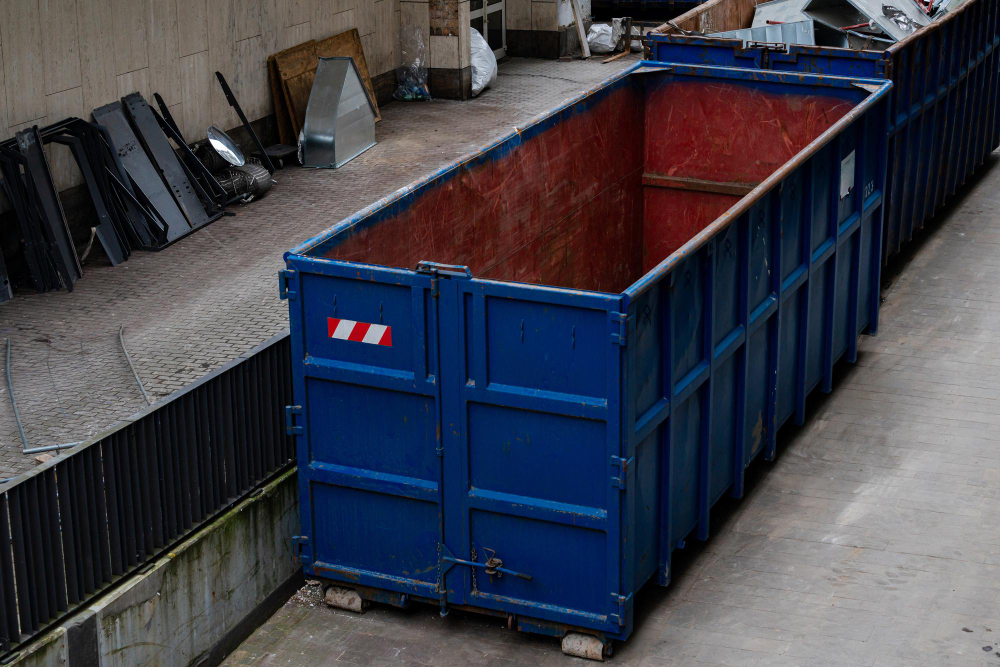What Can Go in a Roll Off Container?

Roll-off containers are essential tools for managing large amounts of waste. Whether you're renovating your home, clearing out a property, or managing debris from a construction site, a dumpster makes the job much easier. However, not everything can be thrown into a roll-off container. Understanding what is and isn't allowed is crucial for a smooth and safe disposal process, especially if you're looking for a roll off container rental in Orlando, FL.
Disposing of prohibited items can lead to extra fees, legal issues, and environmental harm. Rental companies and local landfills have strict rules to ensure waste is handled correctly. This guide will walk you through the types of materials you can safely toss into your dumpster and which ones require special handling. Knowing these guidelines beforehand will save you time, money, and potential headaches.
General Waste You Can Put in a Dumpster
Most roll-off containers are used for common types of non-hazardous waste. For the majority of home cleanouts, construction jobs, and landscaping projects in Orlando, your debris will likely fall into these accepted categories.
Household Junk
This is one of the most common uses for a roll off container rental. When you're decluttering your garage, basement, or entire home, a dumpster is perfect for getting rid of accumulated junk.
- Furniture: Couches, chairs, tables, bed frames, mattresses, and dressers.
- Appliances: Items like refrigerators, air conditioners, and freezers may be accepted, but they often require special handling first. You must have the Freon (a hazardous material) professionally removed and provide documentation. Check with your rental company beforehand.
- Carpet and Flooring: Old carpets, rugs, tiles, and floorboards can be tossed in.
- General Clutter: Toys, books, clothes, and other miscellaneous household items are all acceptable.
Construction and Demolition (C&D) Debris
Construction and renovation projects generate a significant amount of waste. A roll-off container is ideal for keeping your Orlando job site clean and organized.
- Wood: Lumber, plywood, and siding.
- Drywall: Sheets of drywall and plaster.
- Roofing Materials: Shingles and underlayment (note: some companies require a separate container just for shingles due to their weight).
- Concrete, Brick, and Asphalt: These heavy materials are usually accepted but often have weight limits or may require a dedicated container to manage their density. Always confirm with your rental provider.
- Metal: Scrap metal, pipes, and wiring are generally fine.
Yard Waste
For large-scale landscaping projects, a dumpster can be a lifesaver. It’s perfect for organic materials that would overwhelm your regular curbside bin.
- Branches and Stumps: Large tree limbs and small stumps can go in, but be mindful of weight.
- Grass and Leaves: Clippings, leaves, and other general green waste are acceptable.
- Dirt and Sod: Like concrete, heavy materials like soil and sod may have specific weight restrictions or require a separate dumpster.
Items You Cannot Put in a Roll Off Container
To protect the environment and comply with local and federal regulations, certain materials are strictly prohibited from roll-off containers. These items are often hazardous and require special disposal methods.
Hazardous Materials
Hazardous waste poses a threat to public health and the environment if not disposed of properly. These items can leach toxic chemicals into the ground and water supply. Never throw these materials into your dumpster.
- Chemicals: This includes cleaners, solvents, pesticides, fertilizers, and automotive fluids like oil, antifreeze, and transmission fluid.
- Paint and Lacquer: Wet paint, stains, and lacquers are prohibited. However, completely dried latex paint (usually hardened with cat litter or sand) may be accepted by some providers. Oil-based paint is always considered hazardous.
- Batteries: Car batteries and rechargeable lithium-ion batteries are banned due to the risk of fire and toxic leakage.
- Asbestos: This known carcinogen is found in older building materials and requires professional abatement and disposal.
- Propane Tanks and Aerosol Cans: Pressurized containers can explode when compacted, posing a serious safety risk.
Other Prohibited Items
Beyond hazardous materials, other items are restricted for different reasons, such as regulations or landfill policies.
- Tires: Whole tires are not accepted at most landfills because they can trap methane gas and are difficult to compact.
- Electronics (E-Waste): Computers, TVs, printers, and cell phones contain heavy metals like lead and mercury. These items should be taken to a designated e-waste recycling center in Orlando, FL.
- Medical Waste: Syringes, sharps, and other biohazardous materials are strictly forbidden and require specialized disposal.
- Flammable Liquids: Gasoline, kerosene, and lighter fluid present an extreme fire hazard.
- Hot Water Heaters: Similar to appliances with Freon, these often have specific disposal requirements.
What to Do with Prohibited Items
If you have items that can’t go in your roll-off container, you have several options for proper disposal in the Orlando area.
- Local Hazardous Waste Collection Sites: Orange County provides facilities where residents can safely drop off hazardous materials. Check the county's website for locations, hours, and accepted items.
- E-Waste Recycling Programs: Many electronic stores and local recycling centers have programs specifically for e-waste.
- Scrap Metal Recyclers: For items like pipes, wiring, and certain appliances, a local scrap yard may pay you for the materials.
- Tire Retailers: Most tire shops will accept old tires for a small fee when you purchase new ones.
Always check with your local authorities or the rental company if you are unsure about a specific item. It’s better to ask first than to face a fine later.
Plan Your Dumpster Rental with Confidence
Renting a roll-off container is a straightforward way to manage waste for your next big project. By knowing what you can and can't throw away, you ensure a safe, efficient, and penalty-free experience. Planning ahead and sorting your waste correctly will make your cleanup process run smoothly from start to finish.
If you're looking for a roll off container rental in Orlando, FL, our team at Tip Top Containers is here to help. We can guide you on the right size container for your project and answer any questions you have about waste disposal. Contact Tip Top Containers today to request a quote.


